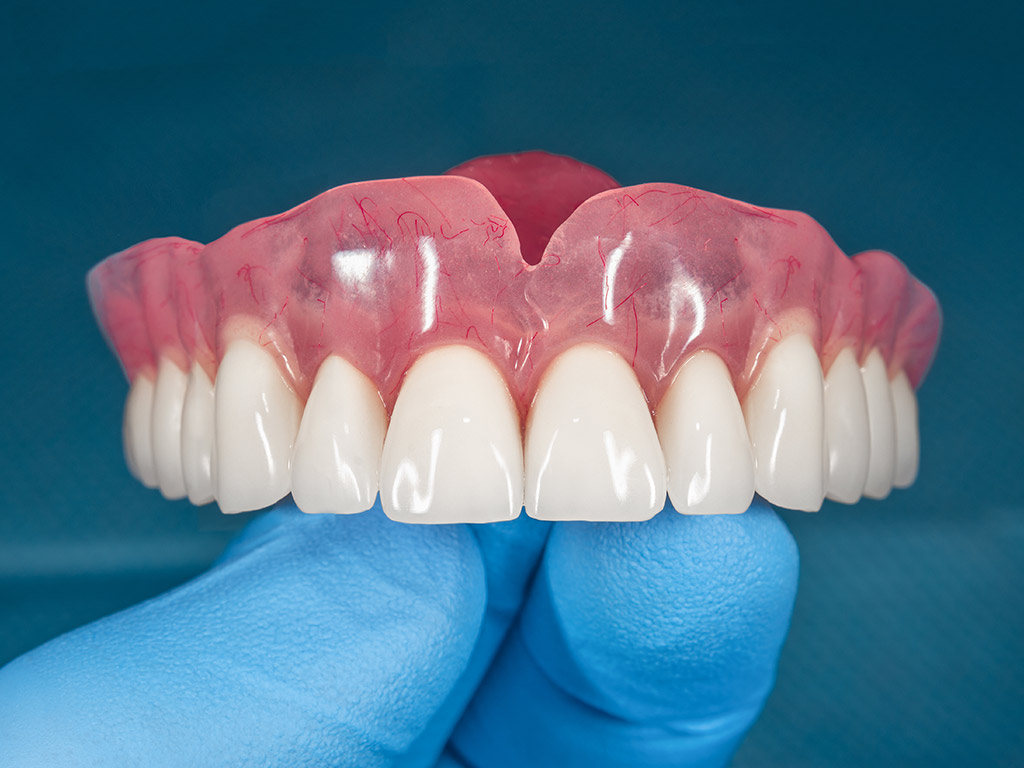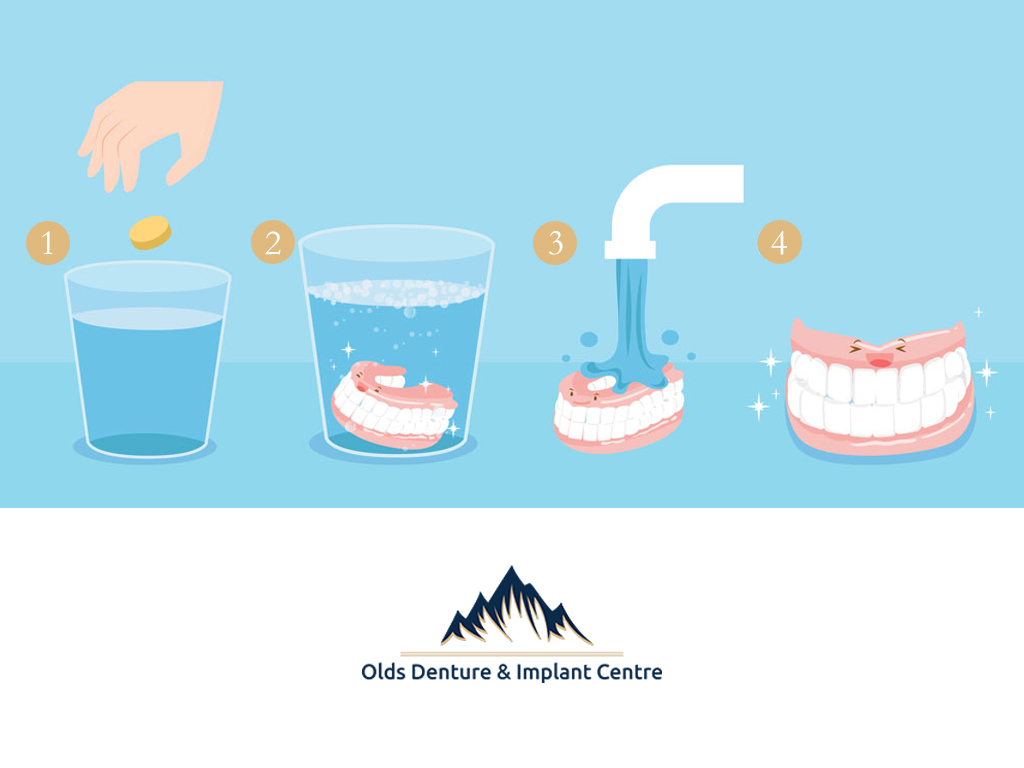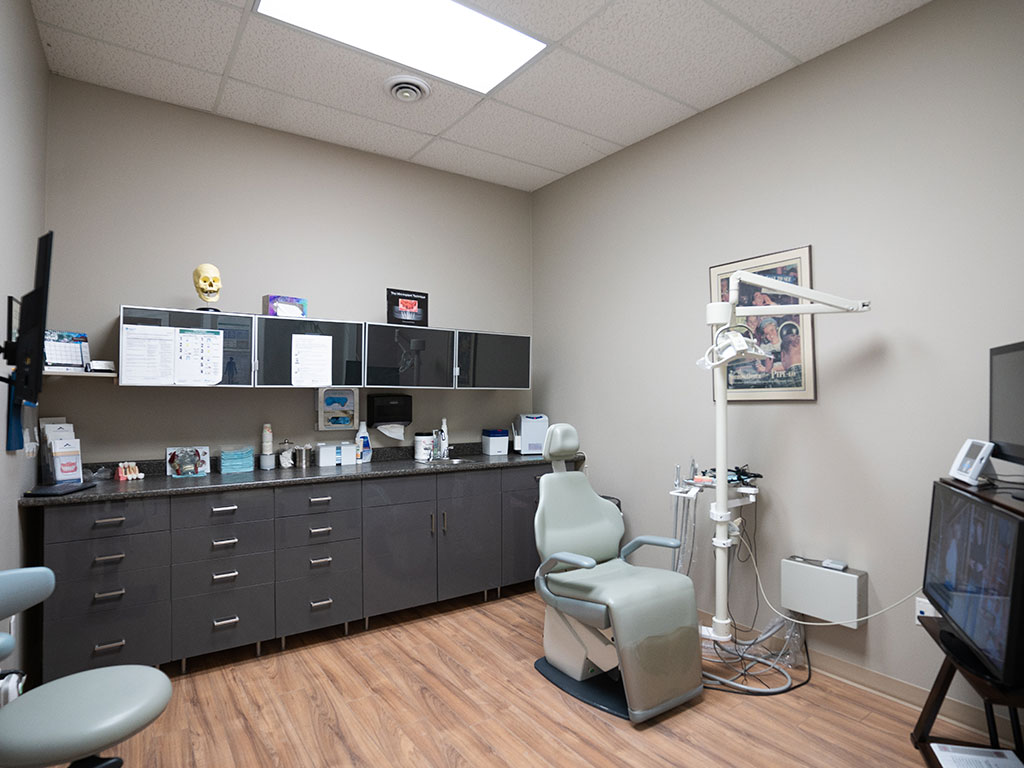 29 Jun 2021
29 Jun 2021
Just like natural teeth, dentures require regular cleaning and care. If dentures aren’t cleaned regularly, it can negatively impact your oral health through bad breath, discomfort while wearing your dentures, and even inflamed gums. What you may not realize is that these are all symptoms of gum disease.
The earliest stage of gum disease, gingivitis, is usually painless so many denture wearers don’t realize that their oral health is deteriorating through improper care. That’s why it’s so important to be proactive in maintaining not only the cleanliness of your dentures but also the health of your gums.
Gingivitis is caused when plaque and other bacteria gets built up underneath your dentures and along your gum line. Wearing dentures does not increase your risk of gum disease, but if they are not cleaned properly, dentures can hold on to dangerous plaque and bacteria that lead to gingivitis.
Common symptoms of gingivitis are red and swollen gums, frequent bad breath, and gums that bleed easily. If left untreated, gingivitis can turn into more serious gum disease, but luckily it is easily preventable.
Keep your gums happy and healthy by following these 6 tips.
1. Regularly clean your dentures
Like your natural teeth, your dentures also require regular care and maintenance because they can accumulate tartar and plaque buildups. If left to harden on your dentures, plaque can irritate your gums and make wearing your dentures uncomfortable.
To avoid plaque buildup, it is recommended that you brush your dentures at least once a day with a soft bristle brush and a denture-specific toothpaste. You can also try soaking your dentures in a deep-cleaning denture solution to help eliminate the spots that you might have missed with brushing. For more tips on how to properly care for your dentures, consider reading this article.

2. Give your gums a break
If you wear a removable denture, taking it out before you go to bed can actually help your oral health and keep your gums happy. Removing your denture for six to eight hours a night will give your gums a chance to rest and breathe. Your dentures were made to fit exactly to your mouth, but it is still a foreign object that sits on your gum line. Even the best fitting dentures can mildly irritate your gums, so letting your gums breathe will help avoid any potential discomfort.
3. Remember to care for the rest of your mouth
While your dentures are removed, consider giving the rest of your mouth some care and attention. Gently massage your gums and the inside of your cheeks with a washcloth or soft bristled toothbrush to help relieve tension in the face and jaw. This can also help improve circulation, decrease swelling in your gums, and even stimulate the repair of tissue.
If you have any natural teeth remaining, also be sure you are brushing and flossing once or twice a day. Always follow the advice of your denture specialist when it comes to caring for your dentures and remaining teeth.
4. Use a therapeutic mouthwash
Using a mouthwash every day has many benefits for your oral health, including the elimination of bad breath and lingering bad tastes, the control or reduction of plaque and gingivitis, and the prevention of tooth decay.
When choosing a mouthwash at the store, be sure to carefully read the label. There are two types of over-the-counter mouthwashes: cosmetic and therapeutic. Cosmetic mouthwashes may be slightly more affordable, but they do not act in the prevention of plaque buildup or tooth decay. Cosmetic mouthwash is usually only helpful for eliminating bad breath.
Opt instead for a therapeutic mouthwash. This will provide you with the benefits necessary for good oral health AND pleasant breath.
5. Don’t smoke
According to a study done by the CDC, smokers are twice as likely to develop gum disease than nonsmokers. Smoking weakens your immune system, which is your first defense against infection. This makes it harder for your body to fight off an infection in your gums.
The longer you smoke, the higher your risk of getting gum disease becomes, so if you smoke, consider quitting for your physical and oral health. If quitting is not a realistic goal for you, try limiting how much you smoke to help protect your gums’ health.

6. Go for regular check-ups with your denturist
Your denturist is trained to recognize the early signs of gingivitis and other gum diseases, which can often be detected during your regular denture check-ups. Denture clinics are also equipped to give your dentures a thorough clean that will remove any tartar and plaque that you may have missed while brushing your teeth.
Regular visits with your denture specialist will also ensure that your dentures fit well in your mouth to avoid painful and unnecessary rubbing against your gums.

If you are experiencing persisting or painful swelling in your gums, be sure to contact your denture specialist right away. While these suggestions may be helpful in keeping your gums happy and healthy, there may be underlying reasons why your gums are irritated, such as an ill-fitting dentures or malnutrition, which may require specific treatment.
If you are searching for a reliable and experienced denturist, give the friendly staff at Olds Denture & Implant Centre a call at (403) 791-3303. They offer convenient, reliable, and free consultations and are always welcoming new patients.
